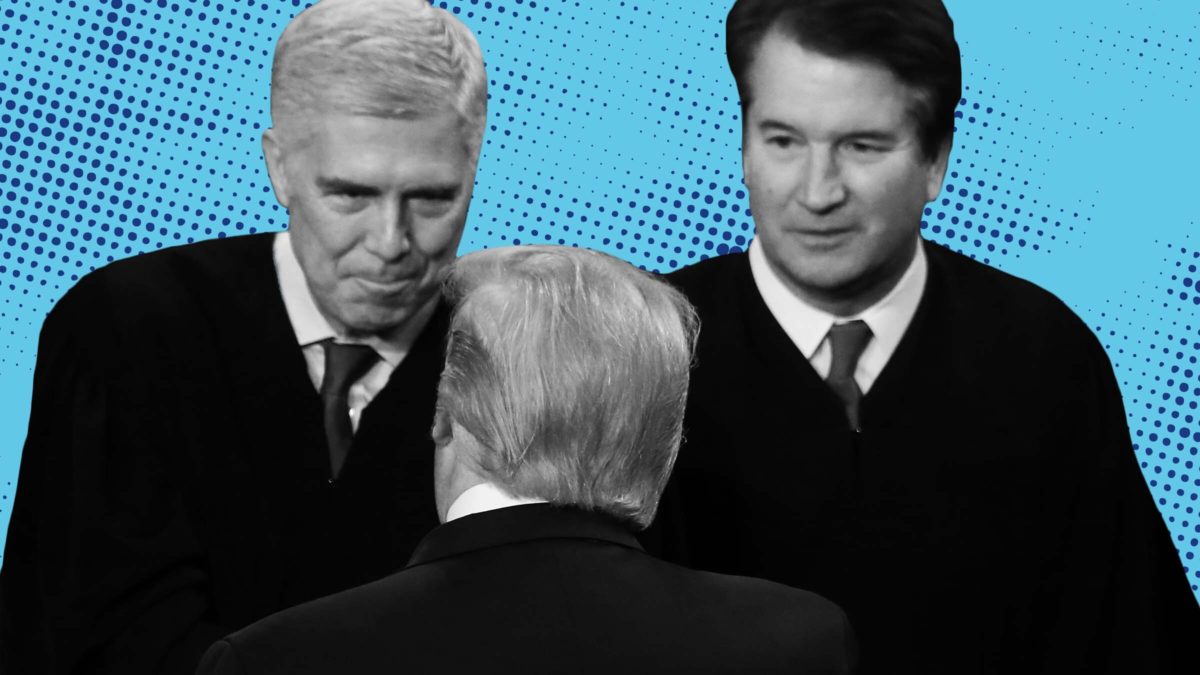On New England fishing boats, cramming another person into a space that barely fits a half-dozen employees already is a big ask. But the National Marine Fisheries Service, a federal agency within the jurisdiction of the U.S. Department of Commerce, requires that herring fisheries notify it before embarking on fishing trips, and on half of such trips, a federal inspector rides along. The inspector checks the crew’s compliance with federal rules about where they can fish, how many of which types of fish they can catch, and what kind of gear they can use in the process. The rule also requires that companies help foot the bill for its inspectors’ salaries—about $710 a day. Fishery owners say this reduces their annual returns by about 20 percent.
Last year, four fisheries challenging the rule asked the Supreme Court to put a stop to this practice. And last week, the Court granted certiorari in the case, Loper Bright Enterprises v. Raimondo. The justices will hear oral argument sometime next fall.
This case is about much more than the frustrations of a handful of hardworking fishermen, though: The fisheries are represented by Paul Clement, a prominent Supreme Court lawyer for conservative causes, and are supported by a bevy of conservative legal movement organizations intent on kneecapping the power of executive agencies to do the day-to-day work of governing. Together, they are asking the Court to overturn Chevron v. Natural Resources Defense Council, a landmark 1984 Supreme Court case requiring judicial deference to agencies’ interpretations of an agency’s own authority, as long as the interpretation is “reasonable.”
Overturning Chevron would open the door for the federal judiciary to make itself the arbiter of what administrative agencies that provide critical services can and can’t do. For decades, conservative organizations have pushed this result, reliably popping up in any case that might whittle away at the power of the administrative state. Now that the Court is controlled by a six-justice conservative supermajority, they are on the verge of winning at last.
Among the organizations urging the justices to take the case are the Cato Institute, which conservative megadonor Charles Koch co-founded in 1977; the Pacific Legal Foundation, which staffers for then-California Governor Ronald Regan founded in 1973; the New England Legal Foundation, founded in 1977 and now run by Daniel Winslow, a former Massachusetts state lawmaker and advisor to Mitt Romney; and the National Right to Work Legal Defense Foundation, founded by the notoriously anti-union Congressman Fred Hartley in 1968. The New England Legal Foundation’s amicus brief urges that “it is well past time” for the Court to “acknowledge forthrightly that Chevron did not undo, and could not have undone, the judicial duty to provide an independent judgment of the law’s meaning.”
Many of these groups are part of the first wave of “public interest” legal nonprofits, founded in the late 1970s with the shared goal of curbing government regulation of corporations. Law professors have taken to calling them an “amicus machine,” which has a great deal of influence on the conservative justices’ decisions about what cases to take and how to decide them. Last year, for example, the Pacific Legal Foundation represented an Idaho couple suing over federal environmental regulations in Sackett v. EPA, a case that the justices will decide later this term. A decision in the Sackett family’s favor could hamstring the EPA’s efforts to regulate water pollution and mitigate climate change going forward. The New England Legal Foundation and Cato Institute both wrote briefs in support of this exact result.
This is hardly the only arena where the Cato Institute has weighed in in favor of weakening the government’s ability to function: The scope of government action it attacks is wide, from ending protections for indigenous families guaranteed by the Indian Child Welfare Act, to stopping President Joe Biden’s student loan forgiveness program, to throwing a wrench in the U.S. Department of Housing and Urban Development’s efforts to protect trans and queer people from housing discrimination. In Loper Bright Enterprises, the Cato Institute is arguing that judges deferring to agency judgements is not only “unconstitutional,” but also “ahistorical.” The Court decided Chevron, the case establishing that principle, four decades ago.
The National Right to Work Legal Defense Foundation, as you might guess from the name, focuses its efforts on limiting the government’s power to protect the rights of workers and unions. This term, the Foundation weighed in to support a cement mixing company’s efforts to get the green light to intimidate striking workers by suing them over lost profits, and fought back against the National Labor Relation’s Board’s decision to allow union formation with signed union member cards instead of formal secret ballot vote. The Foundation is hitting all the same notes in its amicus brief in Loper Bright Enterprises, bashing the National Labor Relation’s Board expertise in labor matters as “fraudulent” and a “euphemism for policy judgements.”
These groups want the same thing from government deregulation: a future in which megacorporations can do as they please, unencumbered by pesky rules and regulations that threaten their bottom lines. A victory for the petitioners in Loper Bright Enterprises would get herring fisheries off the hook for paying for inspector salaries. But this result would be disastrous for just about everyone else.

